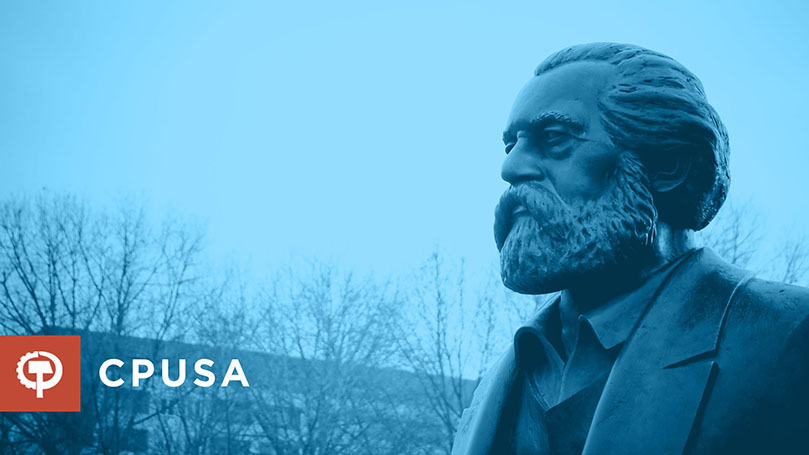
This year is both the 200th anniversary of the birth of Karl Marx and the 170thh anniversary of the first publication of the Communist Manifesto, which both Marxists and non Marxists regard as the most influential single document in modern history, Today’s Marxist IQ is dedicated to the Manifesto and its authors, Karl Marx and Friedrich Engels.
1. Marx and Engels in the Communist Manifesto contended that workers had “nothing to lose but their chains” because:
a) They faced prison if they did not revolt;
b) They were chained to the land;
c) They were “ wage slaves” chained to the wage system;
d) They were chained by their nationality.
2. The Manifesto understood the development of the world market as
a) Positive because it created a global working class;
b) Negative because it intensified exploitation;
c) Positive because it produced greater distribution of goods;
d) Both positive and negative, because it globalized the exploitation of workers and the class struggle making socialist revolution nationally and internationally more likely.
3. Marx and Engels saw the working class as revolutionary because:
a) Its labor was the basis of everything that was produced;
b) Capitalist profit was based on the economic exploitation of the working class;
c) The working class was constantly expanding with the development of capitalism, reducing social classes and class conflict to capital vs. labor;
d) All of the above.
4. When the authors of the Communist Manifesto contended that they were advocates of “scientific socialism” they meant:
a) Socialism could be understood the way physics is understood;
b) Socialism was a “faith based” system like “Christian Science;”
c) Scientific socialism applied a general theory to empirical evidence, as science does, rather than ignoring or favoring either general theory divorced from empirical evidence or empirical evidence divorced from general theory;
d) Calling something “scientific” was a way to gain respect.
5. Marx and Engels in the Communist Manifesto contended that Communists should;
a) Act as missionaries to the working class;
b) Support alliances with capitalist groups to advance working-class interests;
c) Build armed groups to overthrow capitalist governments in the name of the working class;
d) Develop strategies to unite the various sections of the working class and stress its overall economic and political interests.
6. The principle of the separation of Church and State, as Marx and Engels understood, was a foundation of both bourgeois (capitalist) and socialist democracy, however it was violated in practice in capitalist states. The first modern revolutionary state to institute in policy and law the separation of Church and State was
a) The British revolution of the 17th century;
b) The American revolution of the 18th century;
c) The French revolution of the 18th century;
d) The Russian revolution of the 20th century.


 Join Now
Join Now